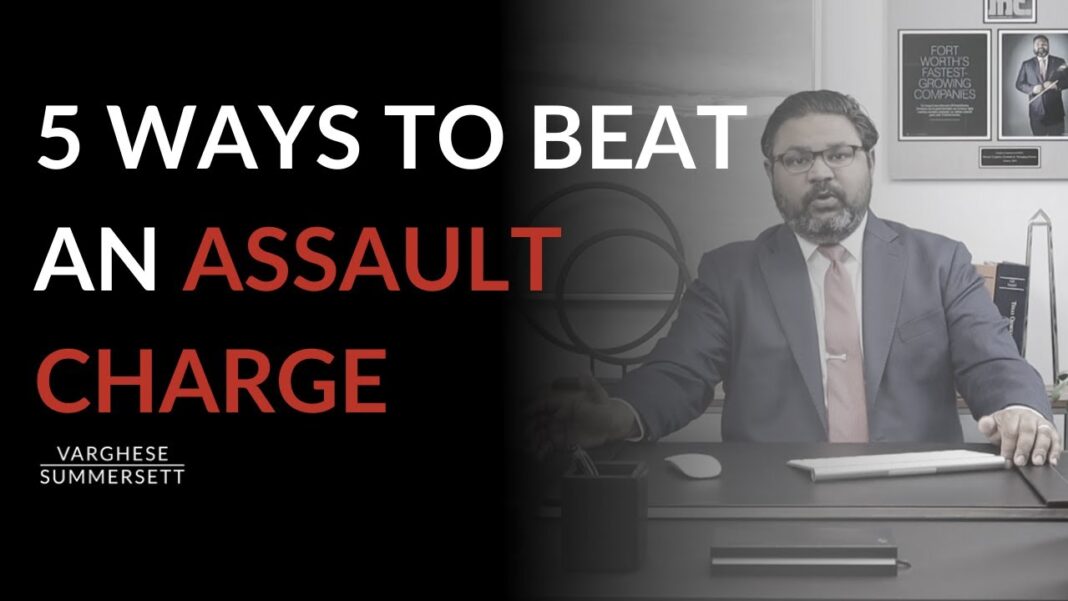An assault is a criminal offence that happens both intentionally and unintentionally and may cause minor as well as serious injuries to someone.
If the victim raises an assault charge against a person, the convict has to face penalties for their acts depending upon the seriousness of the offences.
People with first time assault charge in Canada often gets confused about how to beat an assault charge. This article tells you all about it.
Types of Assault Charges
There are various types of assault charges in Canada, punishments of which are also very different depending upon the seriousness of the offences.
Some major types of assault charges, along with their sentences, are listed below:
Simple Assault
Simple assault happens when the convict uses no weapons to harm the victim, and the victim’s injury generally remains minor.
The matter of a simple assault usually gets settled down in the Provincial Court with the presence of a single judge. The punishment for this assault is not more than six months, expect an indictable case.
Aggravated Assault
Aggravated assault is a serious kind of offence that causes severe endangerment to the victim, such as disfiguring, wounding, maiming etc. It is considered as an indictable crime for which the convict might face a sentence of imprisonment for a maximum of 14 years.
Assault Causing Bodily Harm
In case of a summary offence in an assault causing bodily harm, the convict can face the highest punishment of imprisonment for up to 18 months. However, if this assault appears to be indictable, punishment gets higher, jail time for almost 10 years.
Sexual Assault
This is the most heinous type of assault. It involves crimes from a sexual touch to a force or threat to do sexual acts.
Sentences for sexual assault are almost similar to the sentence of an assault causing bodily harm. In case the victim is less than 16 years old, the convict’s punishment can get increase.
Domestic Assault
In a domestic assault, the victim raises charges against the convict, who is nothing but their own partner or family member.
It includes forcing someone to do household chores and sexual, verbal and physical abuse. The judge or the jury decides the punishment of a domestic assault depending upon the severity of the case.
How to Beat An Assault Charge in Canada?
You already know the different types of assault charges in Canada. Now comes the question of how to beat an assault charge in Canada.
Here goes a brief discussion of all the possible ways of beating an assault charge in Canada:
Self Defence
In order to beat an assault case or any other legal issues, self-defence is the best way to fight. According to the Criminal Code of Canada, you can apply threat or force upon the opposition party if you are rationally and legally right.
Generally, using force mostly happens in a property case where there is the possibility of destroying the property by the opposition party.
Intention
Intention can become another way how you can beat an assault charge in Canada. That means, if you are an accused person of an assault and you can somehow prove to the court that the offence you committed was unintentional, you can get out of the case.
For example, if you get charged for hitting someone, you might prove logically that you threw an object for another reason, but it, unfortunately, hit the victim.
Consent
Suppose you are in a bar with a friend. Suddenly, you two start a fight out of a disagreement, which later becomes an issue. As a result, your friend gets injured, and you are charged with an assault case.
In that situation, you can prove to the court that the fight was completely without your consent, and you might get released. However, you can not use this consensual issue as a defence in case of a bodily harm assault.
Reasonable Doubt
Last but not the least, if you can raise a reasonable doubt against the charge of assault upon you, the court might rethink your case and let you be free or drop the case.
For that purpose, an experienced lawyer is the best assistance for you. Only a professional lawyer can raise reasonable doubts using various legal hoops.
Conclusion
Now you probably know how to beat an assault charge in Canada, right? We have discussed all the possible ways you can follow to get out of an assault charge if you are not really guilty. However, we highly recommend you to consult with an experienced lawyer in such assault cases.


























